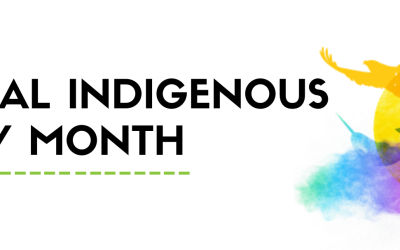Indian bands in Manitoba are falling behind those in Saskatchewan and Alberta when it comes to improving governance institutions, a new survey has found.
The annual Aboriginal Governance Index, a survey conducted by the Frontier Centre for Public Policy, shows that residents in First Nation communities in Saskatchewan and Alberta believe their governments are becoming more accountable and transparent, while little progress is being made overall in Manitoba.
The Index’s Top 10 included eight First Nation communities from Saskatchewan and two from Alberta.
In last year’s Index, a Manitoba band was ranked second among all First Nation communities surveyed and placed three bands on the Index’s Top 10 list. This year, the highest ranked Manitoba band placed 15th.
Joseph Quesnel, a policy analyst with the Frontier Centre and primary author of the study, said the differences between most bands isn’t significant but added that the performance of the Manitoba First Nations in this year’s index needs further study to explain why their residents are giving their governments lower scores.
"We would say we found that Manitoba was slightly lower than average but there is good performers in each of the provinces," Quesnel said. "It definitely concerns us, so we want to see what’s going on in those (Manitoba) First Nations and hopefully they’d adopt some of the best practises that we’ve identified."
The Aboriginal Governance Index measures five different areas of government based on survey responses in each community:
Elections — how fair and impartial are votes for leaders?
Administration — how effectively is the band’s business conducted?
Human Rights — how much regard is assigned to basic rights?
Transparency — how well are citizens informed about government?
Economy — how well is the community providing economic development?
The index surveyed 78 First Nation communities in Alberta, Saskatchewan and Manitoba, 10 more bands than were surveyed in 2009.
Manitoba’s top-ranked First Nation in the 2010 Index is Sapotaweyak Cree Nation, whose residents gave it a score of 69.6 out of 100.
That was a strong rating for the community on Dawson Bay, about 450 kilometres north of Brandon. Last year, the same community had scored 62.0.
However, Sapotaweyak ranked 15th when participating communities from all three provinces are combined.
Last year, Rolling River First Nation had the highest Manitoba score, 69.9, ranking 2nd among First Nations in the prairies. This year, Rolling River had a score of 62.4, which places it 57th among the 78 First Nations communities that participated.
Looking at the First Nations by province found that the there was little difference between the top-rated Manitoba bands this year compared to those who earned those spots last year. However, the Index found that the top five First Nations in both Saskatchewan and Alberta had outperformed the top five from the previous year.
The average score of the Manitoba top 5 this year is 65.35, compared to 65.76 in 2009. The average score of Saskatchewan’s top 5 in 2010 is 74.08, compared to 65.06 in 2009; Alberta’s top 5 averaged 70.92 this year, compared to 67.9 in 2009.
"It’s really hard to explain from year to year what’s going on in each of the communities," Quesnel said. "There have been a lot of governance challenges in Manitoba in the last couple of years, especially with band elections."
2010 Aboriginal Index
Surveyed 4,871 aboriginal people on 78 First Nations in Alberta (15), Saskatchewan (42), and Manitoba (21), through direct interviews in their home communities.
Participating communities included only those where the leadership allowed the surveyors access. Communities with fewer than 100 adults were excluded from the Index for statistical reasons.
Index Highlights
Fair elections — 87% of those surveyed said they believe votes were either "definitely" or "probably" counted fairly in the last election.
Nepotism — 69% said that being related to a band council members would be at least a "small help" in getting a job; 22% said it would "guarantee" a job.
Transparency — 20% said their band "definitely" allows access to business plans and financial statements; 23% said this information is "never" made available to them.


